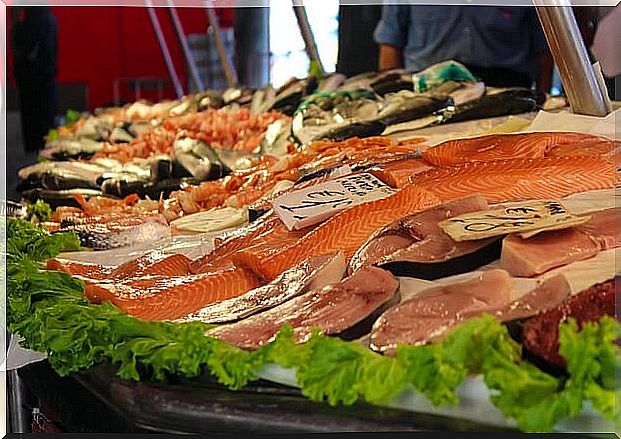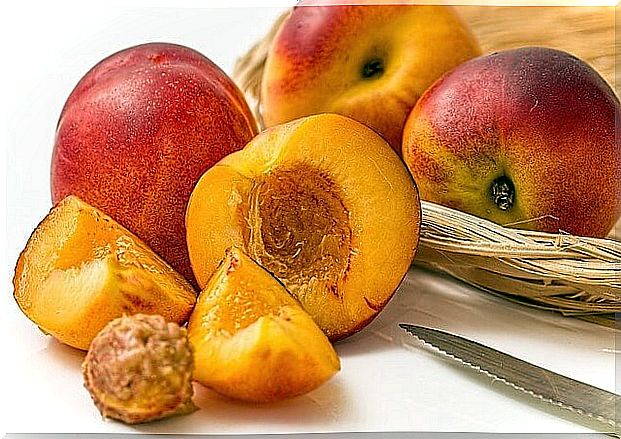What Should Mothers Eat While Breastfeeding

There are many myths around breastfeeding, and one of them is how the mother’s diet affects the increase or decrease of milk or its quality.
For that reason we have started to inquire among the experts: What should mothers eat while breastfeeding?
The World Health Organization, the American Pediatric Association and the Spanish Pediatric Association exclusively recommend the consumption of breast milk by newborns. These organizations highlight breast milk as an essential food for the optimal development and good health of the baby.
Today no one disputes that breast milk is the food that will satisfy your baby’s hunger and contribute to his well-being. In the first 6 months of the baby’s life, pediatricians suggest that it be fed only with breast milk, except in very specific cases where substitutes or additional food supplements must be administered due to a special condition that the child or mother presents.
The breastfeeding process is still full of mysteries. In Eresmamá.com we have cleared some such as “5 things you may not know about breastfeeding” and “Yes to breastfeeding! Know all its benefits ”.
However, it is still an area that is worth knowing because of the wonder of this crucial process in the formation of the baby and the construction of the mother-child bond.
What foods to consume while breastfeeding?
It is recommended to maintain a balanced diet. That is, it contains all the representatives of the food pyramid (proteins, carbohydrates, grains, cereals, vegetables and fruits).
It is a universal rule that breastfeeding women should consume 500 calories more than recommended in the daily diet because they are working on milk production and this consumes more energy.
However, the premise is to eat in a balanced way and eat fewer portions of food, more variety and more frequently. That is, eat 5 times a day and always choose fresh and natural over processed foods.

Fish and lean meats
Omega-3 oils from some fish and shellfish are highly recommended to transmit these nutrients to the baby during the lactation process that will contribute to the healthy formation of their brain, senses and take care of their organs.
A diet in which you consume at least three days of the week fish such as salmon, tilapia, shellfish, crab and other cold-water fish is ideal. Thus, the consumption of lean and fresh poultry or beef meats.
As a way to cook these meats, choose the steam, the iron, the oven or the grill. Healthier than fried foods.
Avoid eating canned meats or fish that are high in mercury such as albacore tuna or halibut.
Juices and lots of water
Drink natural juices, smoothies and natural infusions with little sugar. Special concentrations with watercress, beets, strawberries and fruits of the season with concentrated doses of vitamins.
Eat as many fruits as possible.
Avoid consuming pasteurized juices and consume cow’s milk or dairy foods in moderation, as they are one of the products that produces the most allergies in babies.
Increase your water consumption and respect the advice to drink two liters a day.
Control the consumption of citrus juices as they could cause acidity to the baby or acidify the milk.

Grains and cereals
I ncrementa at this stage of your life intake of grains and whole grains. Its high fiber content will help your digestion and the baby’s digestion.
Vegetables
The intake of vegetables, especially green and orange vegetables is a must during breastfeeding.
However, keep in mind how the consumption of onion, garlic, brussel sprouts or cauliflower affects breast milk and if it generates any irritating reaction to the baby such as colic.
What not to eat while breastfeeding
Alcohol. It is forbidden during breastfeeding to consume alcohol. Although a glass of wine or a beer does not cause major damage, it will still affect in some way the quality of the milk that you supply to babies in the following hours. Therefore, do not drink alcohol.
Caffeine. Avoid consuming caffeine, carbonated or energy drinks as they could significantly alter the state of your baby’s nervous system.
Chocolate and sweets. Cut back on sugar as much as possible. Instead, take natural substitutes like honey or a sweetener. If you want to kill a sweet tooth, do it before 2 in the afternoon.
Finally, watch what you consume and how the baby reacts to attend to a possible allergy in time.









